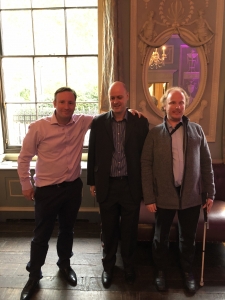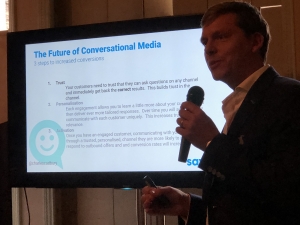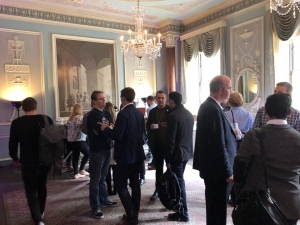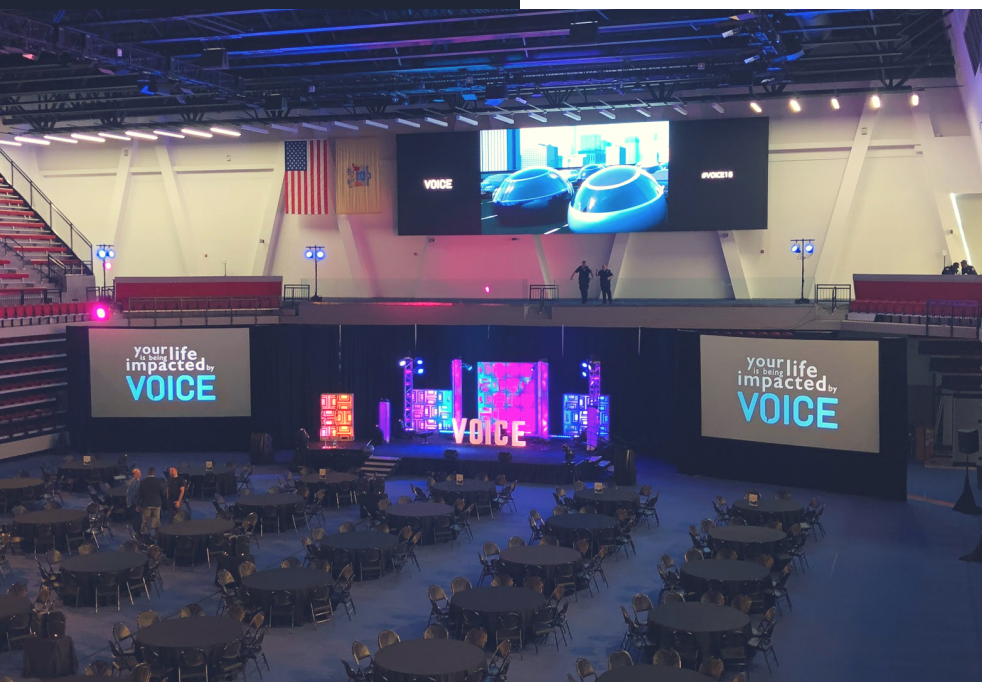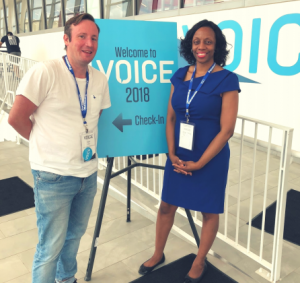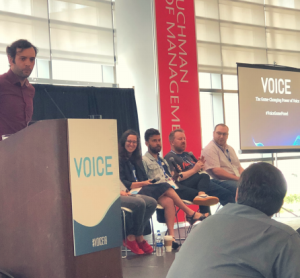Our first Voice Summit was held at Home House London. The history of Home House is fitting because Anthony Blunt a former Russian spy lived there between 1947 to 1974. Blunt was given immunity from prosecution in return for a full confession. After extensive restoration work Home House became a private members club in 1996.
Home House was a fitting venue for Voice Summit. Just as Anthony Blunt listened into conversations Amazon Alexa and Google Home are listening and waiting for their wake word. The issue of privacy was mentioned at Voice Summit but the majority of the speakers stated that this would become less of an issue when the massive gains in conveniences are realised. After all it’s a lot quicker to ask Alexa to pour you a coffee, play the news and heat the car than it is to do this manually.
Charles Cadbury the CEO of Say It Now demonstrated how he and his team had created a chat bot for SEAT for booking a test drive. Instead of the traditional web form or telephone booking appointment Charles took the audience through a series of questions with an Alexa Skill resulting in a SEAT car being delivered to a person’s home for a test drive.
In the telecoms panel including Dean Elwood, Dean Bubley and Chris Lewis, virtual assistants for managing unwanted calls was discussed. Perhaps for unknown numbers a virtual assistant could ask an inbound caller qualifying questions to determine whether the line should be connected. Another idea was when you are on a call with another person the ability in the call to talk to a voice assistant for help. For example on a call asking Siri in the call what is 1 dollar in pounds and getting the answer. The consensus from the telecom experts was that large telecoms providers have been slow to market with VoiceFirst products and services and need to catch up.
John Campbell, Head of SEO at We are Roast demonstrated there are still plenty of opportunities for Alexa Skills and Google Actions to drive leads and enquiries to your business or brand. The reality is voice technology is still in its infancy and every time you ask Alexa or OK Google a question it doesn’t know there is an opportunity to create a skill or action to service that need. Indeed voice search is predicted to be 50% of all internet searches by 2020. A traditional web search brings back many results whereas with voice there is only one result and this is position zero. Adopting a voice search SEO strategy can therefore get you to the top of Google and Amazon search results leading to lower customer acquisition costs.
James Poulter rounded off the day explaining there has never been a more interesting time to be in the workplace. You now have four generations at work all with different social norms and ways of working. This is a real challenge for managers and leaders to get it right as they think about culture in their organisations. Ironically a voice first approach to internal communications can be good for both the silver surfers and the millennials!
In a week where Google launched it’s Google Home Hub and Amazon it’s Echo Show 2 plus a range of devices such as the Echo Auto for enabling Alexa in your car, microphones are going to be everywhere. What remains to be seen is who will control the mic? Will it be Alexa, Cortana, Google Assistant or perhaps even Samsung’s Bixby. Will we make our car purchasing decisions for example on the type of voice assistants built in? And finally will voice assistants talk to each other so we have fridges talking to toasters?
When a task is more natural, quicker and simpler with the voice, then a VoiceFirst approach should be adopted. This doesn’t mean a voice only approach as screens starts to become more prevalent in smart speakers and multi modal experiences become more commonplace. What is clear is that voice is here to stay and removing the friction of the keyboard or indeed the touch screen can lead to a more delightful experience for your customers. All of this leads to competitive advantage which will help you on your digital transformation journey.
